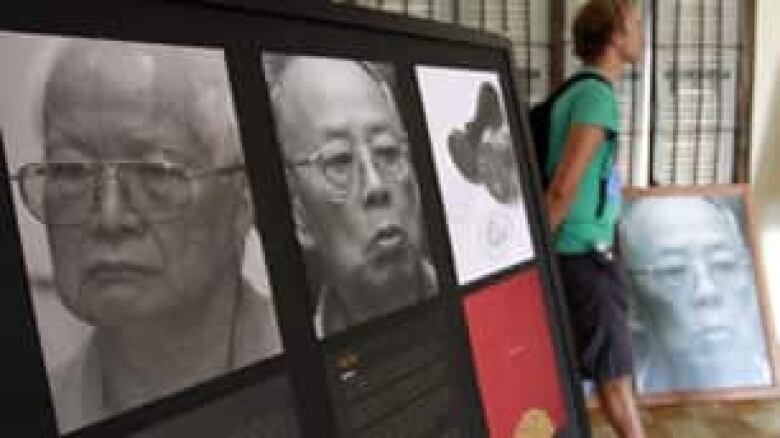Khmer Rouge tribunal indicts 4 leaders
Cambodia's UN-backed genocide tribunal has indicted the four top surviving leaders of the Khmer Rouge regime blamed for 1.7 million deaths in the 1970s, paving the way for the panel's long-awaited second trial next year.

The trial, due to start by mid-2011, will bring to the stand Nuon Chea, 84, the group's ideologist; former head of state and public face of the regime, Khieu Samphan, 79; former foreign minister Ieng Sary; and his wife Ieng Thirith, ex-minister for social affairs, both in their 80s.
Each faces four charges: crimes against humanity, genocide, war crimes and a combined charge of murder, torture and religious persecution, co-investigating judge You Bunleng told a news conference.
The indictments follow the conviction in July of the regime's chief jailer, Kaing Guek Eav, also known as Duch, on charges of war crimes, crimes against humanity, torture and murder. He was sentenced to serve 19 years in prison a term criticized by many Cambodians as too lenient.
Duch, 67,was the first defendant to be tried. He supervised the notorious S-21 prison where as many as 16,000 people were tortured before being executed.
While Duch's trial was assisted by his co-operation with the tribunal and the meticulous record-keeping of S-21, marshalling evidence against the Khmer Rouge chiefs could prove more complicated. Their trial will also likely be more politically sensitive because some current Cambodian leaders were once lower-level Khmer Rouge cadre themselves.
The devastation to Cambodia caused by the shadowy regime's radical policies during its 1975-79 rule is beyond doubt. Towns and cities were depopulated in a disastrous agrarian experiment that shunned technology and persecuted the nation's educated classes. Perceived opponents of the regime, even within its own ranks, were ruthlessly purged.
But the opaque nature of the regime's workings may make it harder to establish complicity of the accused.
"Given the magnitude of the crimes committed under the Democratic Kampuchea regime," the new case would focus on "a specific selection of sites and criminal activities," the tribunal said in a statement.
Several other major Khmer Rouge figures have died, including the supreme leader, Pol Pot, in 1998 a factor that only adds to the pressure on the tribunal to expedite proceedings against the four indicted Thursday.
Interviewed 46 times
You Bunleng said the four have been interviewed by investigating judges 46 times since being detained at the tribunal in 2007.
Their case file also extends to more than 350,000 pages, including 11,600 documents and more than 1,000 written records of interviews with witnesses and civil parties.

The judges presiding over Duch's case said they took into consideration the historical context of the Khmer Rouge atrocities: The regime which took power as the war in neighbouring Vietnam was ending and in the wake of massive U.S. bombing of Cambodia was the product of Cold War times.
They also recognized that Duch, unlike any of the others in detention, was not in the Khmer Rouge's inner circle, had co-operated with the court and shown expressions of remorse, however "limited."
But they flatly rejected Duch's claims that he merely was acting on orders from the top or that he was a "cog in the machine" who could not get out.
Appeal for longer sentence
Prosecutors are appealing for a longer sentence for him, while Duch has filed his own appeal, seeking acquittal for what he says were legal errors made by the tribunal.
Though the tribunal more than 10 years and $100 million in the making has been credited with helping the traumatized nation speak out publicly for the first time about atrocities committed three decades ago, it has been criticized as well.
The government insisted Cambodians be on the panel of judges, opening the door for possible interference by current leaders,including the prime minister, who were once low-level members of the Khmer Rouge. It also sought to limit the number of suspects being triedrather than, some say, implicate its own ranks.












_(720p).jpg)


 OFFICIAL HD MUSIC VIDEO.jpg)
.jpg)



























































































